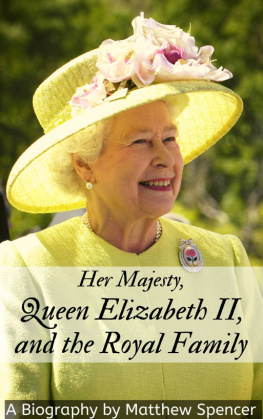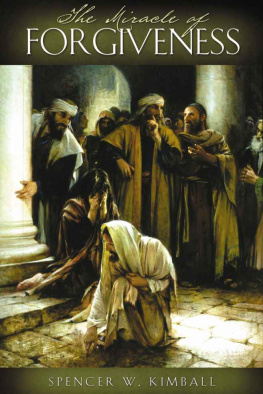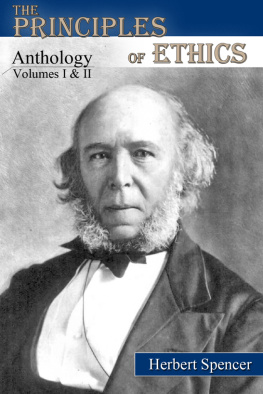THE FAMILY AND ITS MEMBERS
By ANNA GARLIN SPENCER
Lippincott's Home Manuals
Edited by BENJAMIN R. ANDREWS, Ph.D.
Teachers College, Columbia University
CLOTHING FOR WOMEN
By LAURA I. BALDT, A.M., Teachers College, Columbia University. 454 Pages, 7 Colored Plates, 202 Illustrations in Text.
SUCCESSFUL CANNING AND PRESERVING
By OLA POWELL, Department of Agriculture, Washington, D.C. 425 Pages, 5 Colored Plates, 174 Illustrations in Text. Third Edition.
HOME AND COMMUNITY HYGIENE
By JEAN BROADHURST, Ph.D. 428 Pages, 1 Colored Plate, 118 Illustrations in Text.
THE BUSINESS OF THE HOUSEHOLD
By C.W. TABER, Author of Taker's Dietetic Charts, Nurses' Medical Dictionary, etc. 438 Pages. Illustrated. Second Edition, Revised.
HOUSEWIFERY
By L. RAY BALDERSTON, A.M., Teachers College, Columbia University. 351 Pages. Colored Frontispiece and 175 Illustrations in Text.
LAUNDERING
By LYDIA RAY BALDERSTON, A.M., Instructor in Housewifery and Laundering, Teachers College, Columbia University. 152 Illustrations.
HOUSE AND HOME
By GRETA GREY, B.S., Director of Home Economics Department, University of Wyoming. Illustrated.
MILLINERY (In Preparation)
By EVELYN SMITH TOBEY, B.S., Teachers College, Columbia University
Lippincott's Family Life Series
Edited by BENJAMIN R. ANDREWS, Ph.D.
Teachers College, Columbia University
CLOTHINGCHOICE, CARE, COST
By MARY SCHENCK WOOLMAN, B.S. 290 Pages. Illustrated. Second Edition.
SUCCESSFUL FAMILY LIFE, ON THE MODERATE INCOME
By MARY HINMAN ABEL. 263 Pages.
THE FAMILY AND ITS MEMBERS
By ANNA GARLIN SPENCER, Special Lecturer in Social Science, Teachers College, Columbia University.
LIPPINCOTT'S FAMILY LIFE SERIES
Edited by Benjamin R. Andrews, Ph.D., Teachers College, Columbia University
THE FAMILY
AND ITS
MEMBERS
BY
ANNA GARLIN SPENCER
SPECIAL LECTURER IN SOCIAL SCIENCE, TEACHERS COLLEGE OF COLUMBIA UNIVERSITY,
FORMERLY ASSOCIATE DIRECTOR OF THE NEW YORK SCHOOL FOR SOCIAL
WORK, SPECIAL LECTURER AT THE UNIVERSITY OF WISCONSIN AND
HACKLEY PROFESSOR OF SOCIOLOGY AND ETHICS AT
MEADVILLE THEOLOGICAL SCHOOL; AUTHOR OF
WOMAN'S SHARE IN SOCIAL CULTURE
PHILADELPHIA AND LONDON
J.B. LIPPINCOTT COMPANY
COPYRIGHT, 1923, BY J.B. LIPPINCOTT COMPANY
PRINTED AT THE WASHINGTON SQUARE PRESS
BY J.B. LIPPINCOTT COMPANY
PHILADELPHIA, U.S.A.
TO THE MOTHERS AND FATHERS, IN
NUMBER BEYOND COUNT, WHOSE
COURAGE, LOVE AND FAITHFULNESS
CARRY ONWARD THE GENERATIONS
AND KEEP THE MAIN CURRENTS
OF LIFE STRONG AND WHOLESOME.
INTRODUCTION
A Threefold Aim.This book is based upon three thesesnamely, first, that the monogamic, private, family is a priceless inheritance from the past and should be preserved; second, that in order to preserve it many of its inherited customs and mechanisms must be modified to suit new social demands; and third, that present day experimentation and idealistic effort already indicate certain tendencies of change in the family order which promise needed adjustment to ends of highest social value.
Many learned books have been written concerning the evolution of sex, the history of matrimonial institutions and the development of the family. This volume is not an attempted rival of any of these. The work of Havelock Ellis, of Le Tourneau, of Otis T. Mason, of Geddes and Thompson, and others building upon the foundations laid by the great pioneers in the study of the family, constitute a sufficient mine of historical information and scientific analysis and evaluation. The studies and suggestions of Olive Schreiner, Mrs. Clews Parsons, Mrs. Helen Bosanquet, Charlotte Perkins Gilman, Ellen Key and others indicate the tendency of modern inquiry into the just basis of the family order. The work of Professors Howard, Giddings, Thomas, Boss, Goodsell, Calhoun, Patten, Dealey, Cooley, Ellwood, Todd and others in college fields, shows the importance of the family and the necessity of giving all that concerns it the most serious attention.
This book aims to begin where many of these students leave off and to turn specific attention to the problems of personal and ethical decision which now face men and women who would make their own married life and parenthood successful. The past experience of the race is drawn upon only in so far as it seems to explain present conditions and point the way to future social and personal achievements.
Basic Principles Underlying All Socially Useful Changes.A fundamental principle in democracy is the right and duty of every human being to develop a strong, noble and distinctive individuality. For such development it is necessary that a person be self-supporting, free of despotic control by others, and able and willing to bear equal part with every other human being in the social order to which he or she belongs.
This implies that no human being should be wholly sacrificed in personal development to the service or welfare of any other human being, or group of human beings, either inside or outside the family circle. On the other hand, after temporary excursions into an extreme individualism that ordained a free-for-all competition in every walk of life, society is now keenly alive to the need for control of personal desire and individual activity within channels of social usefulness. It is beginning to be clearly seen that society has a right to demand from any person or class of persons that form of community service which definitely inheres in the social function which is assumed by, or which devolves upon, such person or class of persons. In the old days of "status," when each and every person found himself in a place set for him and from which he could not depart, there was only the duty of being content and useful in the "sphere of life to which he was called." In the new condition of "contract," in which each and every person in a democratic community finds himself at liberty to use all common opportunities in the interest of his own achievement, there is the duty of choice along every avenue of purpose and of activity. This gives the new double call to the intelligence and conscience; the call to become the best personality one can make of oneself and the call to serve the common life to ends of social well-being.
The Sense of Kind and the Sense of Difference.Doctor Giddings declares in fine summary "we may conceive of society as any plural number of sentient creatures more or less continuously subjected to common stimuli, to differing stimuli and to inter-stimulation, and responding thereto in like behaviour, concerted activity or coperation, as well as in unlike or competitive activity; and becoming, therefore, with developing intelligence, coherent through a dominating consciousness of kind while always sufficiently conscious of difference to insure a measure of individual liberty." Democracy tends to enlarge the area of those who, while conscious of kind that unites, are also keen in desire to develop in liberty any natural difference which can make their personality felt as distinctive or powerful. The individual differences among women were wholly ignored in the past. They were never in reality all alike, as they were commonly thought to be. The usual designation of a subject class lumps all together as if all were the same. It is the mark of emergence from the mass to the class, and from the class to the individual, that more and more defines differences between persons. Women have now, for the first time in the civilization called Christian, arrived at a point in which differences between members of their sex can claim social recognition. They are, therefore, now called upon as never before to balance by conscious effort the personal desire and the social claim. The family, more than any other inherited institution, feels the oscillations between the individual demand for personal achievement and the response to the social need for large service within group relationships which now, for the first time, stir in the consciousness of average women.












